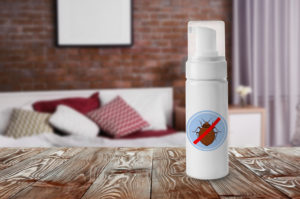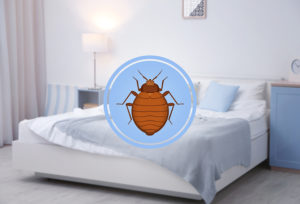A review into the effect of short-term holiday lets aims at improving the holiday letting market for those living in popular tourism destinations.
Call for evidence aims to understand impact of increase in short-term holiday lets in England
An open call for evidence aims to understand the impact of an increase in short-term holiday lets in England following the rise in use of rental booking websites and apps. The review will look at the market and the opportunities and challenges presented for consumers and tourism communities.
The scheme, proposed in a government review that looked at the impact of increases in short-term and holiday lets in England, and could involve physical checks of premises to ensure regulations in areas including health and safety, noise and anti-social behaviour are obeyed.
Government is considering including a registration ‘kitemark’ scheme
Further measures the Government is considering including a registration ‘kitemark’ scheme with spot checks for compliance with rules on issues such as gas safety, a self-certification scheme for hosts to register with before they can operate, and better information or a single source of guidance setting out the legal requirements for providers.
Tourism Minister Nigel Huddleston said:
“We’ve seen huge growth in the range of holiday accommodation available over the last few years.
We want to reap the benefits of the boom in short-term holiday lets while protecting community interests and making sure England has high-quality tourist accommodation.
While no decisions have been taken, this review will help us work out the options to look at so we can protect our much-loved communities and thriving holiday industry.”
Housing Minister, Rt. Hon Stuart Andrew, said:
“Holiday let sites like Airbnb have helped boost tourism across the country, but we need to make sure this doesn’t drive residents out of their communities.
We are already taking action to tackle the issue of second and empty homes in some areas by empowering councils to charge up to double the rate of council tax.
This review will give us a better understanding of how short term lets are affecting housing supply locally to make sure the tourism sector works for both residents and visitors alike.”
The Government understands there can be an impact on housing supply and price in these areas and there are fears caused by evidence of a rise in anti-social behaviour including noise, waste and drunken behaviour in local communities. Lower protections for guests caused by negligence of health and safety regulations are also amidst concerns.
What’s happening in the devolved administrations?
The devolved administrations have taken steps in this area.
Scotland – The Scottish government set out legislation requiring all local authorities in the country to establish a licensing scheme by October 2022.
Northern Ireland – In NI tourist accommodation cannot be provided without a valid certificate issued by the national tourist board.
Wales has publicly stated its ambition to establish a statutory registration or licensing scheme.
What is the trend in Europe?
In other countries, anyone wishing to advertise and provide guest accommodation in Portugal must register electronically before doing so, Greece requires anyone renting out their home to paying guests to register, and, in parts of Ireland designated ‘Rent Pressure Zones’, hosts are only allowed to short-term let their primary residence after having registered.
The commitment to consult on tourist accommodation was first made in the government’s Tourism Recovery Plan published in June 2021.
Who is the government interested in hearing from?
Although this call for evidence is open to everyone, the government is particularly interested in hearing from:
- hosts operating in the short-term and holiday letting market.
- guest accommodation businesses, including digital peer-to-peer platforms that market letting opportunities, short-term and holiday let service companies and those operating other guest accommodation business models.
- enforcement agencies, including the Fire and Rescue Service, the police and local authorities.
- representative bodies, organisations, and groups, including destination management organisations.
The call for evidence will ran for 12 weeks.
Further to the consultation the government released the following press release on 19 February 2024:
Statement setting out the next steps in developing a registration scheme for short-term lets in England:
Boshers offer specialist holiday home insurance to holiday let and cottage complex owners across the UK. If you need an insurance quote for your holiday let call us on 01237 429444.


 Owners of second homes in England who abuse a tax loophole by claiming their often-empty properties are holiday lets will be forced to pay under tough new measures.
Owners of second homes in England who abuse a tax loophole by claiming their often-empty properties are holiday lets will be forced to pay under tough new measures.
 In response to the Covid-19 pandemic, the hospitality and tourism industry have pulled together to produce protocols across all sectors, including specific
In response to the Covid-19 pandemic, the hospitality and tourism industry have pulled together to produce protocols across all sectors, including specific 
 We all know that we should be using less plastic in order to create less plastic waste; in the past 13 years the world has made more plastic than it did in the previous half-century (University of Cambridge) with 350 million tonnes created every 12 months, 8 million of which is making its way into our oceans and causing irrevocable damage to sea creatures and the habitats in which they live.
We all know that we should be using less plastic in order to create less plastic waste; in the past 13 years the world has made more plastic than it did in the previous half-century (University of Cambridge) with 350 million tonnes created every 12 months, 8 million of which is making its way into our oceans and causing irrevocable damage to sea creatures and the habitats in which they live.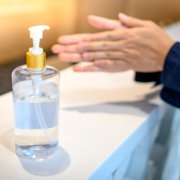
 In late January reports began to emerge of the presence of a potentially deadly virus in the city of Wuhan, China. Since then the continued spread of Coronavirus (now clinically known as COVID 19) has shown no signs of abating, with more than
In late January reports began to emerge of the presence of a potentially deadly virus in the city of Wuhan, China. Since then the continued spread of Coronavirus (now clinically known as COVID 19) has shown no signs of abating, with more than 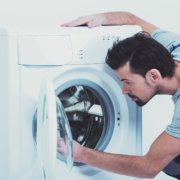
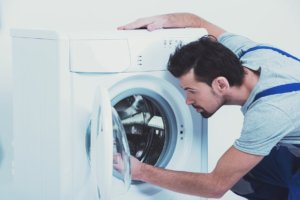 Whilst many of us spent mid-December enjoying and revelling in the run up to Christmas, for Whirlpool and their customers, things were seemingly going from bad to worse.
Whilst many of us spent mid-December enjoying and revelling in the run up to Christmas, for Whirlpool and their customers, things were seemingly going from bad to worse.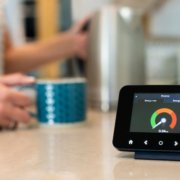
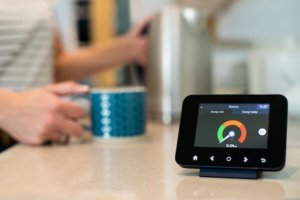 What are Smart Meters and are there benefits of installing them in your holiday home? If there was a simple way for you to monitor, even reduce the gas and electricity bills in your
What are Smart Meters and are there benefits of installing them in your holiday home? If there was a simple way for you to monitor, even reduce the gas and electricity bills in your 


